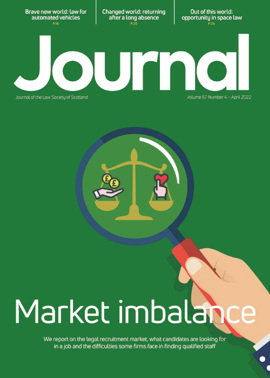Immigration: Providing a home for Ukrainians
The war in Ukraine has led to millions of people fleeing in search of safety. Poland was quick to act and opened its borders almost immediately. Other countries followed suit and eventually the UK also announced schemes, as detailed below.
Ukrainian Family Scheme
The Ukrainian Family Scheme is comparably more generous than other schemes launched by the UK Government, permitting Ukrainian nationals, and their immediate and extended family members residing in Ukraine before 1 January 2022, to join their British family members in the UK. Also eligible are Ukrainian nationals and their family, who have family that are settled in the UK, or family who have refugee status or humanitarian protection, as well as those from the EU who have settled or pre-settled status. The definition of immediate or extended family is outlined on the Government website. The scheme will allow those eligible to remain in the UK for three years, and there is no fee for applying.
Ukrainians coming to the UK under this scheme will be able to work, study and claim benefits. The application process involves completing an online form if the person is outside the UK; they must then upload a copy of their Ukrainian passport and any evidence demonstrating their relationship with the person they are joining in the UK.
It is somewhat more complicated if the Ukrainian national does not have a valid Ukrainian passport. The person will need to attend a visa application centre to enrol their biometrics. This has been causing issues due to appointment availability; walk-ins are not accepted.
Those hoping to travel to the UK under this scheme will need to await a decision on their application before travelling. By 27 March 2022, the total number of visas issued under this scheme was 21,600.
Homes for Ukraine
There were continued calls for the UK Government to do more. We then saw the introduction of “Homes for Ukraine”. This scheme allows people in the UK to apply to host a refugee in their home, or in a property that they own. You must be a British citizen, or have more than six months’ leave to remain, and also be able to offer accommodation for a minimum of six months. Charities, community groups and businesses can also offer accommodation, although the guidance relating to those organisations is yet to be published. This is because the first phase of the scheme is currently open only to individuals. Those who offer accommodation will be eligible to receive £350 per month from the Government for the first year that they act as a host.
People in the UK can apply to sponsor a person or family that they know, or they can register their interest and then match with a Ukrainian refugee. The guidance for sponsors notes that charities and non-governmental organisations will assist with establishing contact between potential sponsors and those looking to come to the UK. The Scottish Government has outlined that sponsors based in Scotland should indicate on the form that they are being sponsored by an organisation, and select the Scottish Government as that organisation. Sponsors and members of their household, as well as the applicants, will be subject to background checks. Once these checks are complete, the Home Office will issue those coming to the UK with a permit allowing them to travel.
It is stated within the guidance that the sponsor is not expected to cover the living costs of those coming to the UK. The main role of the sponsor is to ensure they can provide accommodation for at least six months. The sponsor should also be willing to assist the guests with integrating into life in the UK. Ukrainians who come to the UK will be eligible to work and claim benefits; however, the sponsor should not expect to receive housing benefit as they are not permitted to charge rent.
In terms of issues relating to mortgages, the Government website states that in some cases sponsors may have to check, and advises sponsors to consider the implications of hosting before applying. Regarding insurance, the Association of British Insurers has advised that, as the guests will not be paying rent, sponsors need not inform their insurance company. Those who rent should request permission from their landlord before registering.
What happens next?
The Government has noted that the next phases of “Homes for Ukraine” will be published in due course. What remains to be seen is the number of people who will be accommodated in the UK under “Homes for Ukraine”. Little guidance has been released on what happens once the six months are complete. Integrating into life in a different country requires more than simply allowing access to employment and benefits. Therefore, it is hoped that the UK and Scottish Governments, as well as local councils, will work together to ensure that those who have been displaced are able to feel at home in the UK.
Perspectives
Features
Briefings
- Criminal court: Thom bar still applies
- Licensing: tighter rules for the pet trade
- Insolvency: Transition from the COVID measures
- Tax: What did the Spring Statement bring?
- Immigration: Providing a home for Ukrainians
- Scottish Solicitors' Discipline Tribunal
- Property: RCI – what does it involve?
- In-house: Looking for a star







